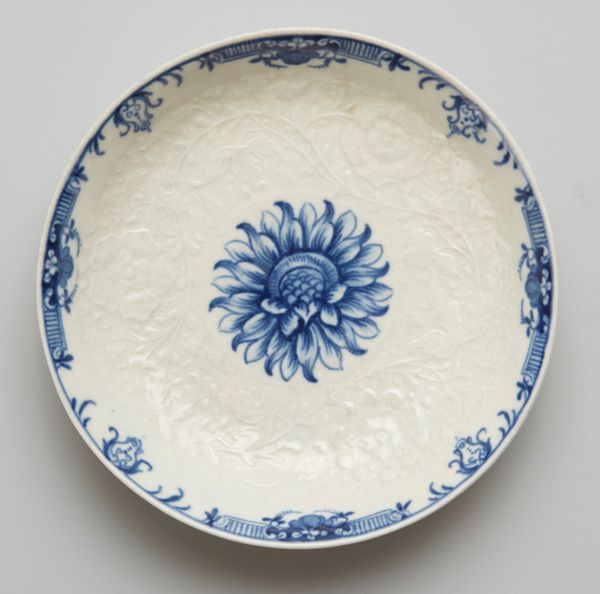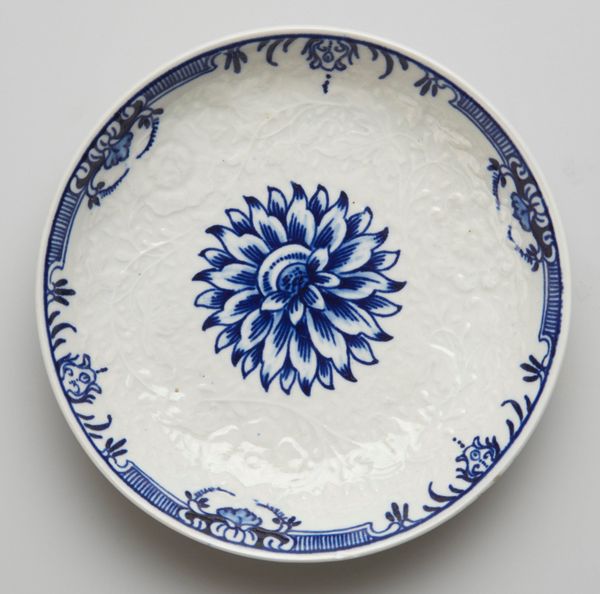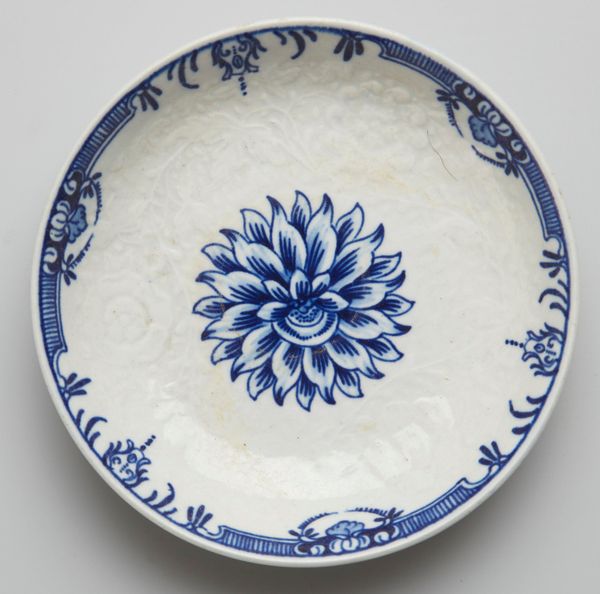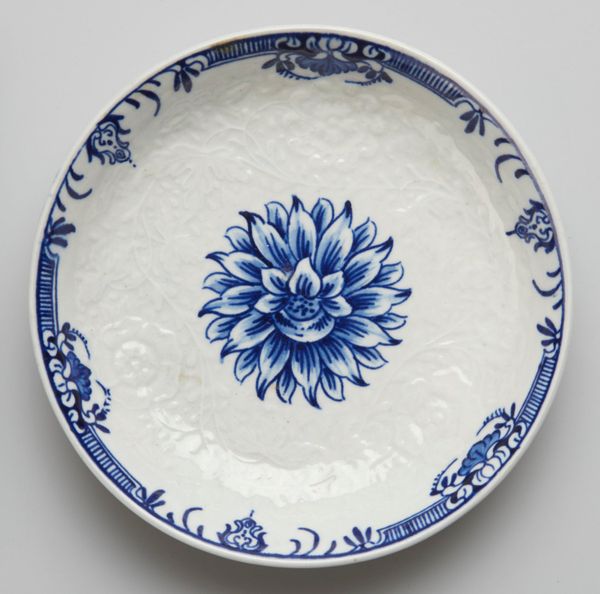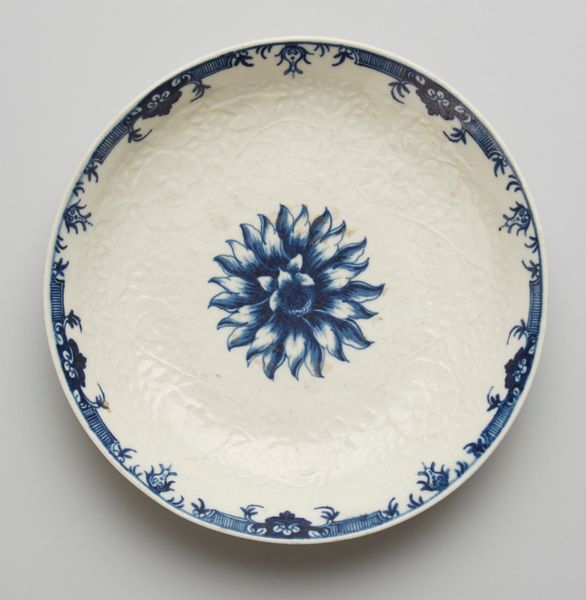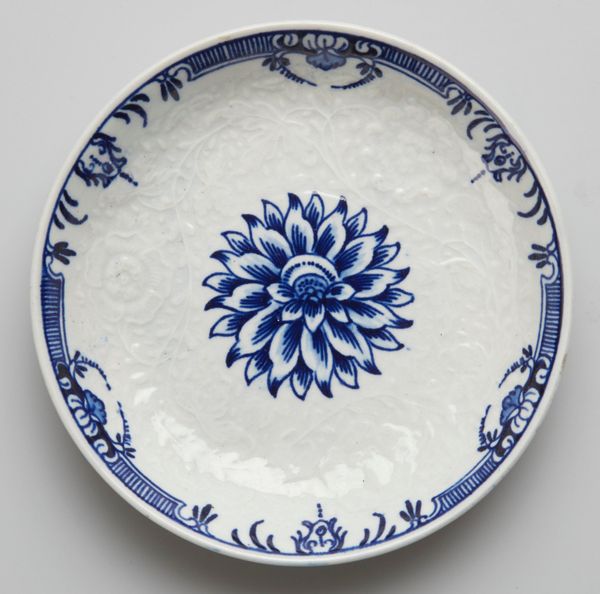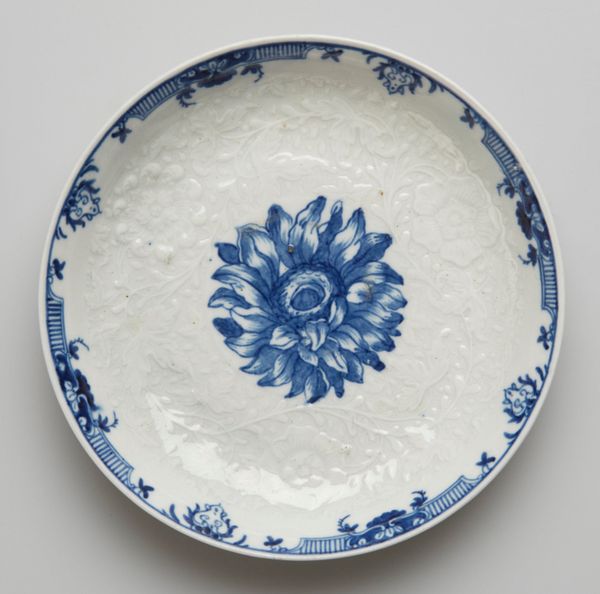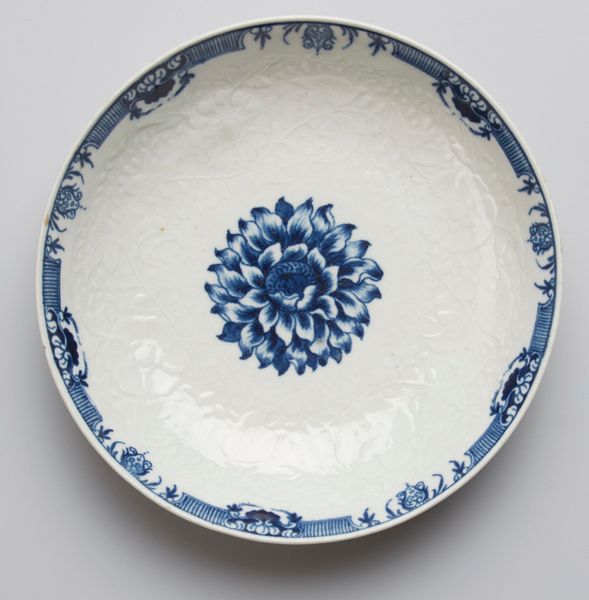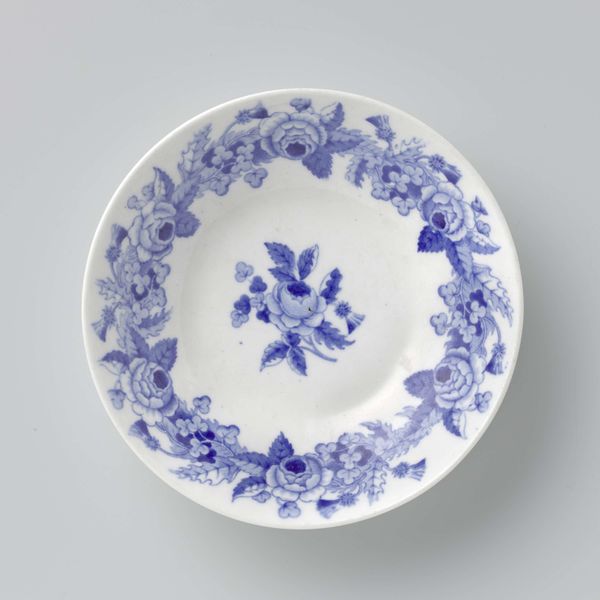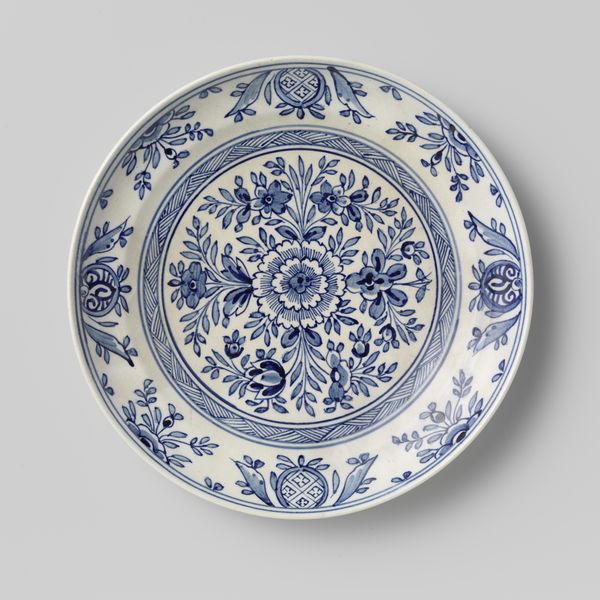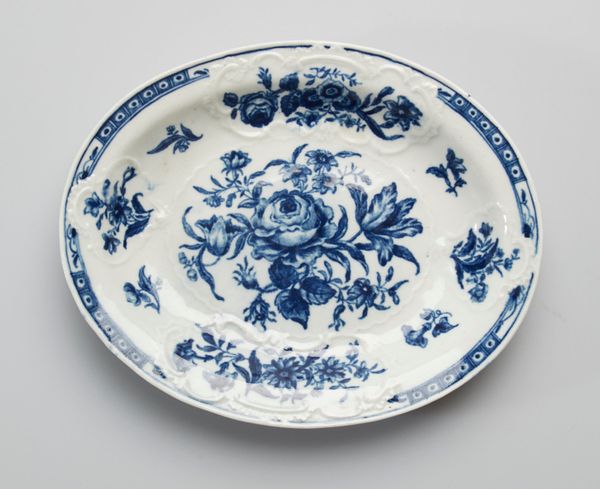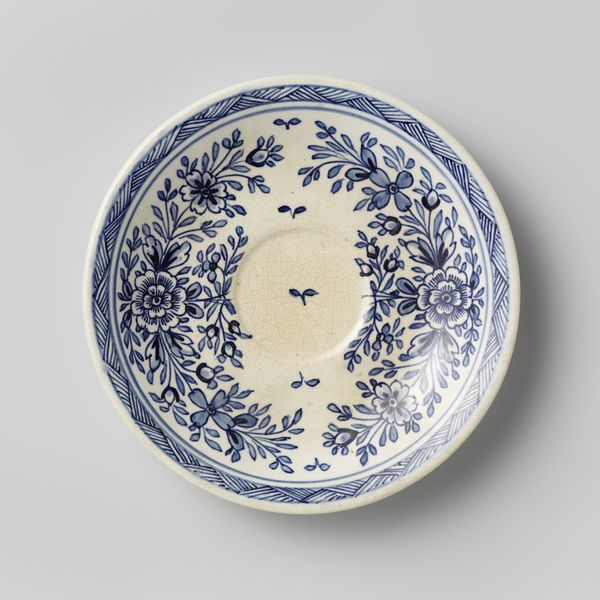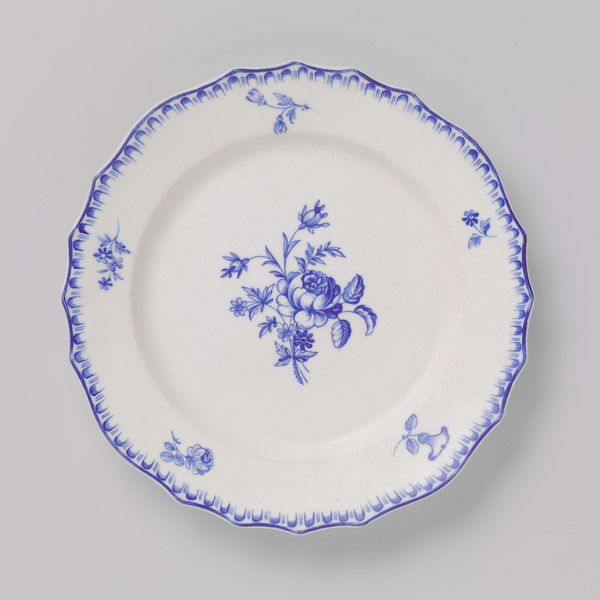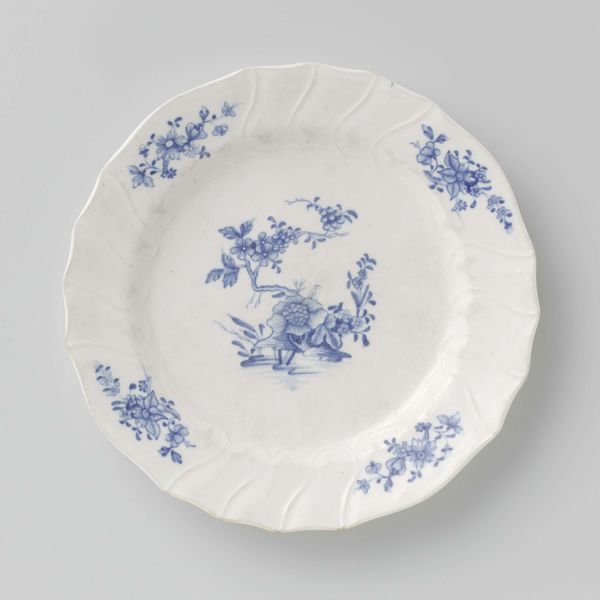
Saucer c. 18th century
0:00
0:00
ceramic, porcelain
#
pottery
#
ceramic
#
porcelain
#
stoneware
#
orientalism
#
ceramic
#
decorative-art
Copyright: Public Domain
Curator: The object before us is a porcelain saucer, crafted around the 18th century by the Worcester Porcelain Works. Editor: It's such a delicate thing! The blue against the white porcelain gives it such a peaceful, serene quality. It also somehow feels very precious. Curator: Precisely. Porcelain, especially during that period, was synonymous with wealth and refinement, something to be cherished and displayed. This piece embodies a broader trend of orientalism. Notice how it imitates design aesthetics popularized from trade with Asia. Editor: The central floral motif feels almost like a sun, radiating outward with a cool intensity. Does that specific flower carry any symbolism that might speak to the cultural context? Curator: Indeed. Chrysanthemums, like the one decorating the plate’s center, carry a host of positive connotations. They signify longevity, joy, and are even linked with imperial power in some East Asian cultures. Its prominent placement speaks to aspirations for a life filled with blessings. Even its formal arrangement evokes cyclical harmony and wholeness. Editor: So this saucer tells a complex story about trade, empire, and artistic interpretation, but also perhaps hints at who used and valued it! I can’t help but wonder about the human hands that both made it, and were made happy in turn from using it! The quiet history within the object! Curator: Well put! Each piece becomes a touchstone—evidence of exchanges and aspirations across vastly different social worlds. Editor: Looking at it through that lens makes me see its value even more—both artistically and as an intersection of various histories. Curator: Agreed. Examining such objects invites us to re-evaluate how intertwined aesthetics, economics, and cultural beliefs become—even in a single porcelain saucer.
Comments
No comments
Be the first to comment and join the conversation on the ultimate creative platform.
